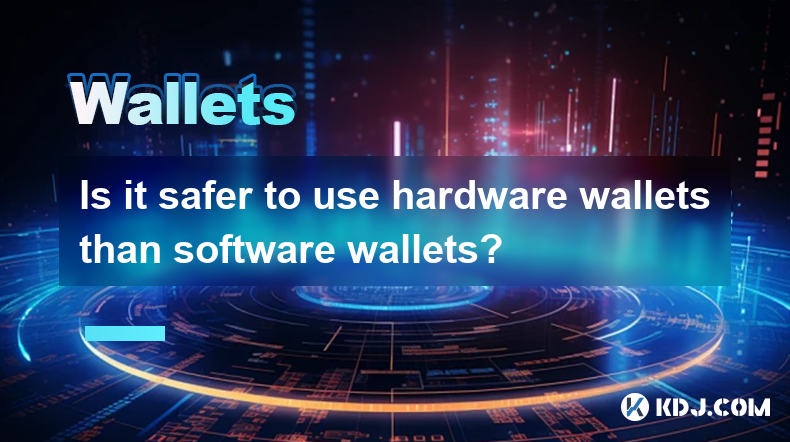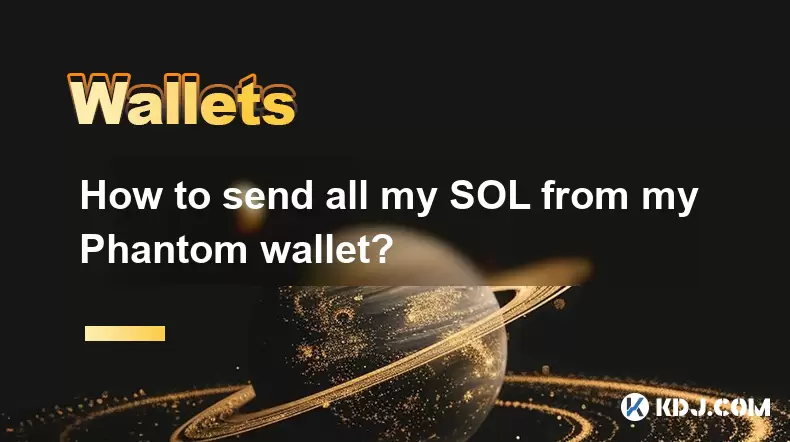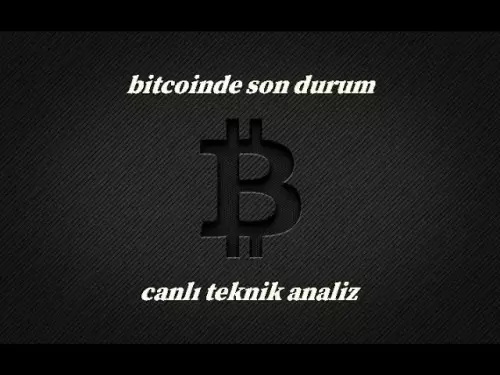-
 Bitcoin
Bitcoin $108,562.4295
0.46% -
 Ethereum
Ethereum $2,533.9553
1.52% -
 Tether USDt
Tether USDt $1.0002
-0.01% -
 XRP
XRP $2.2542
2.23% -
 BNB
BNB $662.4567
1.48% -
 Solana
Solana $151.4114
3.48% -
 USDC
USDC $0.9999
0.00% -
 TRON
TRON $0.2860
0.91% -
 Dogecoin
Dogecoin $0.1685
3.72% -
 Cardano
Cardano $0.5809
1.63% -
 Hyperliquid
Hyperliquid $39.2916
1.85% -
 Sui
Sui $2.8874
0.85% -
 Bitcoin Cash
Bitcoin Cash $496.5801
2.72% -
 Chainlink
Chainlink $13.3582
2.48% -
 UNUS SED LEO
UNUS SED LEO $9.0279
0.07% -
 Avalanche
Avalanche $18.0773
2.30% -
 Stellar
Stellar $0.2426
3.05% -
 Toncoin
Toncoin $2.9086
6.01% -
 Shiba Inu
Shiba Inu $0.0...01170
2.97% -
 Hedera
Hedera $0.1587
3.47% -
 Litecoin
Litecoin $87.4596
1.13% -
 Monero
Monero $317.0425
0.73% -
 Polkadot
Polkadot $3.3778
1.90% -
 Dai
Dai $0.9999
-0.01% -
 Ethena USDe
Ethena USDe $1.0001
-0.01% -
 Bitget Token
Bitget Token $4.4095
0.63% -
 Uniswap
Uniswap $7.3593
6.80% -
 Pepe
Pepe $0.0...09910
3.64% -
 Aave
Aave $274.7388
2.68% -
 Pi
Pi $0.4607
0.48%
Is it safer to use hardware wallets than software wallets?
Hardware wallets offer superior security by storing private keys offline, unlike vulnerable software wallets susceptible to malware and phishing. The best choice depends on your security needs and comfort level with technology.
Mar 21, 2025 at 07:21 am

Key Points:
- Hardware wallets offer significantly enhanced security compared to software wallets due to their offline nature.
- Software wallets, while convenient, are vulnerable to malware, phishing attacks, and operating system compromises.
- The choice between hardware and software wallets depends on individual security needs and technical expertise.
- Both types of wallets have their own set of security protocols and potential vulnerabilities.
- Understanding the risks associated with each type is crucial for responsible cryptocurrency management.
Is it safer to use hardware wallets than software wallets?
The question of hardware versus software wallets boils down to a fundamental trade-off between convenience and security. Hardware wallets, by their very design, are significantly more secure. They store your private keys offline, making them virtually immune to malware and online attacks. Your cryptocurrency remains safe even if your computer is compromised.
Software wallets, on the other hand, are convenient and readily accessible. They are typically installed on your computer, phone, or within a web browser. This accessibility, however, comes at a cost. Software wallets are susceptible to various threats, including malware that can steal your private keys, phishing attacks designed to trick you into revealing your credentials, and vulnerabilities within the software itself. A compromised operating system can also expose your private keys.
The level of security offered by a hardware wallet stems from its air-gapped nature. Your private keys never leave the device itself. Transactions are signed on the hardware wallet, and only the signed transaction is sent to the blockchain. This isolates your private keys from the external world, preventing unauthorized access. Reputable hardware wallets also employ secure elements, specialized chips designed to protect cryptographic keys.
Software wallets, however, require a robust security posture from the user. Regular software updates, strong passwords, and the use of reputable software are essential. Even then, the risk of compromise remains. The convenience of having your cryptocurrency accessible at all times comes with the inherent risk of exposure to various online threats.
Consider the scenario of a sophisticated phishing attack. A user might receive a seemingly legitimate email prompting them to log into their software wallet. If they fall victim, their private keys could be compromised, resulting in the loss of their funds. This risk is greatly mitigated with a hardware wallet as the private keys never leave the device, rendering phishing attempts ineffective.
Choosing between a hardware and software wallet is a personal decision. If you are holding a significant amount of cryptocurrency or are particularly concerned about security, a hardware wallet is generally recommended. The extra cost and slight inconvenience are often considered a worthwhile investment for the increased security.
However, if you only hold a small amount of cryptocurrency and prioritize ease of use, a software wallet might suffice. Just remember to diligently follow security best practices, such as using strong passwords, enabling two-factor authentication, and only using reputable software providers.
Different hardware wallets utilize different security measures. Some employ advanced features such as a PIN code and passphrase protection, adding another layer of security. Understanding the specifics of your chosen hardware wallet is essential for maximizing its security features.
Similarly, different software wallets have varying security implementations. Some offer features like multi-signature wallets, which require multiple approvals for transactions, enhancing security. Others integrate with hardware wallets, combining the convenience of software with the robust security of hardware.
The choice also depends on the type of cryptocurrency you're using. Some hardware wallets support a broader range of cryptocurrencies than others. Ensure the wallet you choose supports the specific coins you intend to store. Software wallets often have wider cryptocurrency support.
Common Questions:
Q: What are the potential downsides of hardware wallets?
A: Hardware wallets can be more expensive than software wallets. They also require physical storage and are less convenient for frequent transactions. Loss or damage to the device can result in the loss of access to your cryptocurrency.
Q: Are all software wallets equally insecure?
A: No. Reputable software wallets from established providers generally implement stronger security measures than less-known or poorly-maintained ones. However, even reputable software wallets are still vulnerable to various threats compared to hardware wallets.
Q: Can I use both a hardware and software wallet together?
A: Yes, many software wallets offer integration with hardware wallets. This allows you to utilize the convenience of a software interface while benefiting from the enhanced security of a hardware wallet for signing transactions.
Q: What happens if I lose my hardware wallet?
A: Losing your hardware wallet is a serious issue. Most hardware wallets offer a recovery process using a seed phrase, a sequence of words that allows you to restore access to your cryptocurrency on a new device. However, you must safeguard your seed phrase carefully; its loss is equivalent to losing access to your funds. Always keep a backup of your seed phrase in a secure, offline location.
Q: How do I choose a reputable hardware wallet?
A: Look for wallets from established brands with a proven track record of security. Read independent reviews and look for features like a secure element and robust recovery mechanisms.
Q: What are the biggest risks associated with software wallets?
A: The biggest risks are malware infections, phishing attacks, operating system vulnerabilities, and weak password security. These threats can compromise your private keys and lead to the loss of your cryptocurrency.
Disclaimer:info@kdj.com
The information provided is not trading advice. kdj.com does not assume any responsibility for any investments made based on the information provided in this article. Cryptocurrencies are highly volatile and it is highly recommended that you invest with caution after thorough research!
If you believe that the content used on this website infringes your copyright, please contact us immediately (info@kdj.com) and we will delete it promptly.
- Litecoin Breakout Watch: What Traders Need to Know Now
- 2025-07-06 16:50:13
- Bitcoin, Solana, Ethereum: Decoding the Latest Buzz on the Blockchain
- 2025-07-06 16:50:13
- Widnes Resident's 50p Could Be Your Ticket to Easy Street: Rare Coin Mania!
- 2025-07-06 16:55:13
- Bitcoin, Solaris Presale, and Token Rewards: What's the Buzz?
- 2025-07-06 16:55:13
- Ethereum Under Pressure: Price Drop Amid Global Uncertainties
- 2025-07-06 17:00:13
- XRP, SEC Case, and Prosperity: A New Era for XRP Holders?
- 2025-07-06 17:10:13
Related knowledge

How to cancel a pending transaction in Phantom wallet?
Jul 03,2025 at 07:21pm
Understanding Pending Transactions in Phantom WalletA pending transaction in the Phantom wallet occurs when a user initiates a transfer or interaction with the Solana blockchain, but it hasn't yet been confirmed by the network. This can happen due to various reasons such as low transaction fees, network congestion, or incorrect gas settings. It's import...

How to see the estimated value of my tokens in Phantom wallet?
Jul 04,2025 at 12:21am
What is Phantom Wallet?Phantom wallet is one of the most popular cryptocurrency wallets designed for the Solana blockchain. It allows users to store, send, receive, and manage various tokens built on Solana, including SPL tokens and NFTs. The wallet offers a user-friendly interface, making it accessible for both beginners and advanced users in the crypt...

How to lock my Phantom wallet extension?
Jul 03,2025 at 11:14am
What Is the Phantom Wallet and Why Lock It?The Phantom wallet is a popular non-custodial cryptocurrency wallet designed for interacting with the Solana blockchain. Supporting both browser extensions and mobile apps, Phantom allows users to store, send, receive, and stake SOL tokens, as well as interact with decentralized applications (dApps). Securing y...

Does Phantom wallet offer two-factor authentication (2FA)?
Jul 03,2025 at 09:00am
Understanding Phantom Wallet and Its Security FeaturesPhantom wallet is a widely used non-custodial cryptocurrency wallet that supports the Solana blockchain. It allows users to store, send, receive, and interact with decentralized applications (dApps) seamlessly. As security is a top priority for any crypto wallet user, security features like two-facto...

How to send all my SOL from my Phantom wallet?
Jul 06,2025 at 10:00am
Preparing to Send SOL from Your Phantom WalletBefore initiating any transaction, it is crucial to ensure that your Phantom wallet is fully set up and connected to the correct network. Phantom supports multiple networks, but for sending SOL, you must be on the Solana blockchain. Confirm this by checking the network indicator in the top-right corner of th...

What is "rent" on Solana and how does it affect my Phantom wallet?
Jul 02,2025 at 08:35pm
Understanding 'Rent' on SolanaIn the context of Solana, the term 'rent' refers to a storage fee that users pay for maintaining data on the blockchain. Unlike Ethereum, where storage costs are paid once via gas fees during contract deployment, Solana implements a recurring cost model to ensure efficient usage of network resources. This means that any acc...

How to cancel a pending transaction in Phantom wallet?
Jul 03,2025 at 07:21pm
Understanding Pending Transactions in Phantom WalletA pending transaction in the Phantom wallet occurs when a user initiates a transfer or interaction with the Solana blockchain, but it hasn't yet been confirmed by the network. This can happen due to various reasons such as low transaction fees, network congestion, or incorrect gas settings. It's import...

How to see the estimated value of my tokens in Phantom wallet?
Jul 04,2025 at 12:21am
What is Phantom Wallet?Phantom wallet is one of the most popular cryptocurrency wallets designed for the Solana blockchain. It allows users to store, send, receive, and manage various tokens built on Solana, including SPL tokens and NFTs. The wallet offers a user-friendly interface, making it accessible for both beginners and advanced users in the crypt...

How to lock my Phantom wallet extension?
Jul 03,2025 at 11:14am
What Is the Phantom Wallet and Why Lock It?The Phantom wallet is a popular non-custodial cryptocurrency wallet designed for interacting with the Solana blockchain. Supporting both browser extensions and mobile apps, Phantom allows users to store, send, receive, and stake SOL tokens, as well as interact with decentralized applications (dApps). Securing y...

Does Phantom wallet offer two-factor authentication (2FA)?
Jul 03,2025 at 09:00am
Understanding Phantom Wallet and Its Security FeaturesPhantom wallet is a widely used non-custodial cryptocurrency wallet that supports the Solana blockchain. It allows users to store, send, receive, and interact with decentralized applications (dApps) seamlessly. As security is a top priority for any crypto wallet user, security features like two-facto...

How to send all my SOL from my Phantom wallet?
Jul 06,2025 at 10:00am
Preparing to Send SOL from Your Phantom WalletBefore initiating any transaction, it is crucial to ensure that your Phantom wallet is fully set up and connected to the correct network. Phantom supports multiple networks, but for sending SOL, you must be on the Solana blockchain. Confirm this by checking the network indicator in the top-right corner of th...

What is "rent" on Solana and how does it affect my Phantom wallet?
Jul 02,2025 at 08:35pm
Understanding 'Rent' on SolanaIn the context of Solana, the term 'rent' refers to a storage fee that users pay for maintaining data on the blockchain. Unlike Ethereum, where storage costs are paid once via gas fees during contract deployment, Solana implements a recurring cost model to ensure efficient usage of network resources. This means that any acc...
See all articles

























































































